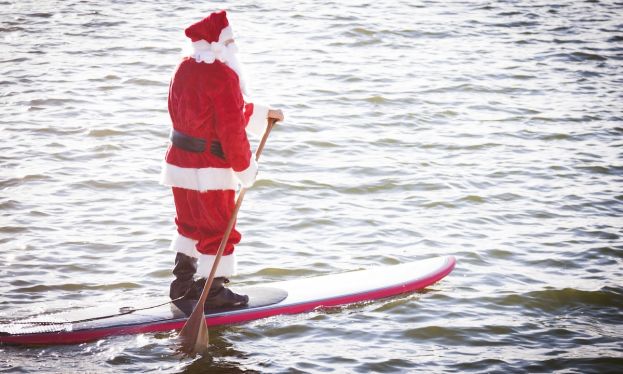Top 10 SUP Race Organizing Mistakes
- Written by Andre Niemeyer
- Published in Tips
- Comments::DISQUS_COMMENTS
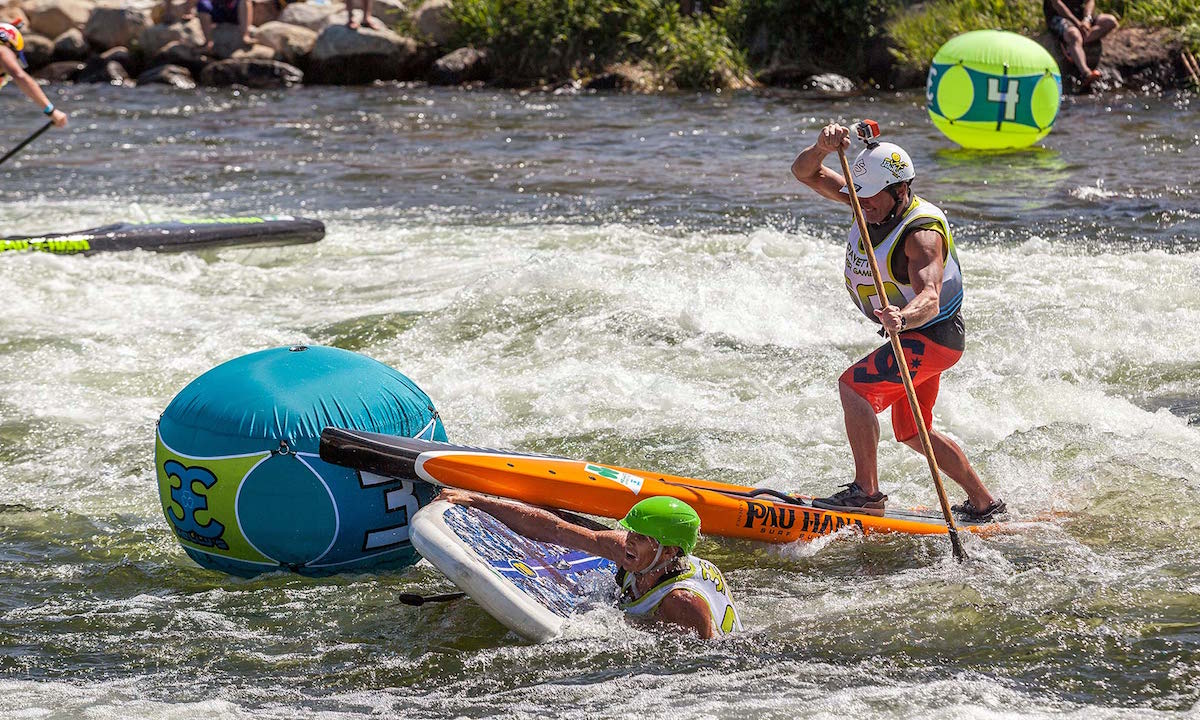 Payette River Games 2014 | Photo Courtesy: Payette River Games
Payette River Games 2014 | Photo Courtesy: Payette River Games
SAN DIEGO, California - There are several mistakes that can seriously undermine or completely ruin your stand up paddleboard (SUP) event. Sometimes these mistakes are not apparent in the first year or years of the event, but eventually catch up and can bring it to a complete halt. With several years of SUP event organizing on the record, there are now some clear patterns and pitfalls that plague events, large and small. Avoiding them is key to not only delivering a great experience to participants and supporters, but also pivotal to ensuring that people come back next time and sponsors build on their involvement. Here are some of the top mistakes to avoid.
1) Under Budgeting
Many events start with lots of enthusiasm but no clear planning and assessment of budget. Being under budget happens far too often and is entirely unnecessary. Despite of all the event organizer’s enthusiasm, the event has real financial needs such as cost of permit, promotional material, advertising, insurance, etc. First and foremost, determine the goal of the event and build it accordingly. And identify the sources of income that will pay for them. If the event is fairly small and just a gathering of friends, see how much people are willing to contribute and go from there. Here are some common items that can break the bank.
- permit
- advertising
- insurance
- awards
- safety personnel
Don’t be the sole benefactor because others’ commitment to the event may last beyond your desire to fund it. And in that case, you’ll end up with frustrated friends. If the event is for a shop to nurture its leads, quantify the cost of the event and tie it to sales by capturing people’s emails, placing them in a Customer Relation Management (CRM) software and determining whether it’s worth it. And in case you want to go big with your event, then there is all the more pressure to get your budget down, identify each budget line item, and match a source of income to fund it. (Read Top 10 Basic Tips for Organizing SUP Races to avoid under budgeting.)
2) Schedule conflict with other events
Entry fees tend to be a major source of income for paddleboard events. Running into a conflict with another SUP event is a sure way to get in trouble with your finances and put the entire event in jeopardy. Going to the basics here can help you avoid lots of headache. So determine the objective of your event, the targeted demographics, and research activities that may generate conflict with your event for that demo group. If the event is heavily local in scope, check the local schedules like marathons, fundraisers, soccer games, etc. If the scope is national or international, check the major SUP Events Calendars such as Supconnect.com, Supracer.com, and others (Read Top 10 Basic Tips for Organizing SUP Races for a more complete list of Standup Paddle Race Event Calendars.)
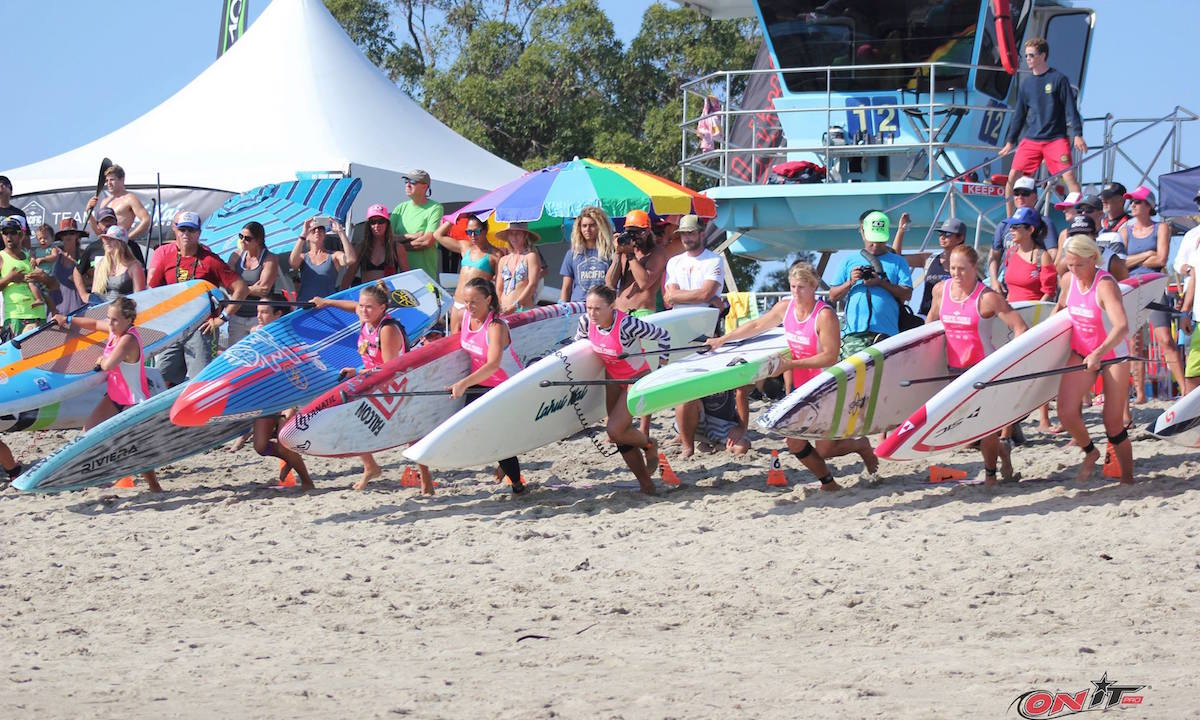 Lifeguards look over the start of the women's race at the 2015 Pacific Paddle Games. | Photo: Onit Pro
Lifeguards look over the start of the women's race at the 2015 Pacific Paddle Games. | Photo: Onit Pro
3) Failing on Safety Requirements
Safety requirements can span over national, state, and local jurisdictions – all depending on the venue. Often times there will be overlapping jurisdictions and all entities need to sign off before your event can take place. Start locally. Go to your City’s Office and tell them about your event. If the event is required to have water safety personnel, ask for contacts and use those recommended by the City office. Using their people will raise the comfort level with the operation and increase your chances of receiving a permit and having an easier time putting it all together. If the City clerk does not have such contact, reach out to the local lifeguards and ask around. Usually, they have a friend or someone they know who can provide the water safety. In some bigger venues, there may also be requirement of a specific number of safety personnel on land, emergency vehicles, and such. Again, start locally and go from there. Additionally, consider creating an advisory board or steering committee with people who either have the experience or the contacts to facilitate the operation.
CLICK HERE to submit your Event to the Supconnect Events Calendar.
4) Understaffed
You cannot do it all alone, not well. List all the different areas of operations and enlist folks with the expertise or willingness to help. There are lots of moving parts and the last thing you want is to be running around frantically on the day of the event with no one to delegate to or no one else to put out the fires. Inevitably, event organizers are swamped on the day of the event and not having a network of people to help can seriously undermine the event experience. Here are some of the basic areas of operations that require staff/volunteers and some respective examples.
- marketing (creative, web, social, newsletter)
- production (shirts, fliers, awards, buoys)
- logistics (parking, board staging, lodging, rentals)
- greeters (people with amazing smiles and attitudes)
- registration (online and offline registration)
- race directing (director, water marshall, result takers)
- water safety (lifeguards, wave runners/boat)
- results (taking them down, publishing, relaying to awards)
- awards/prizes (count, cost, category)
- media relations (invite local/nat’l/int’l press, setup interviews)
That’s not a comprehensive list but does touch on some fundamental areas of sup events. Use that as a starting point and then tweak it to fit your event needs and the experience you envision.
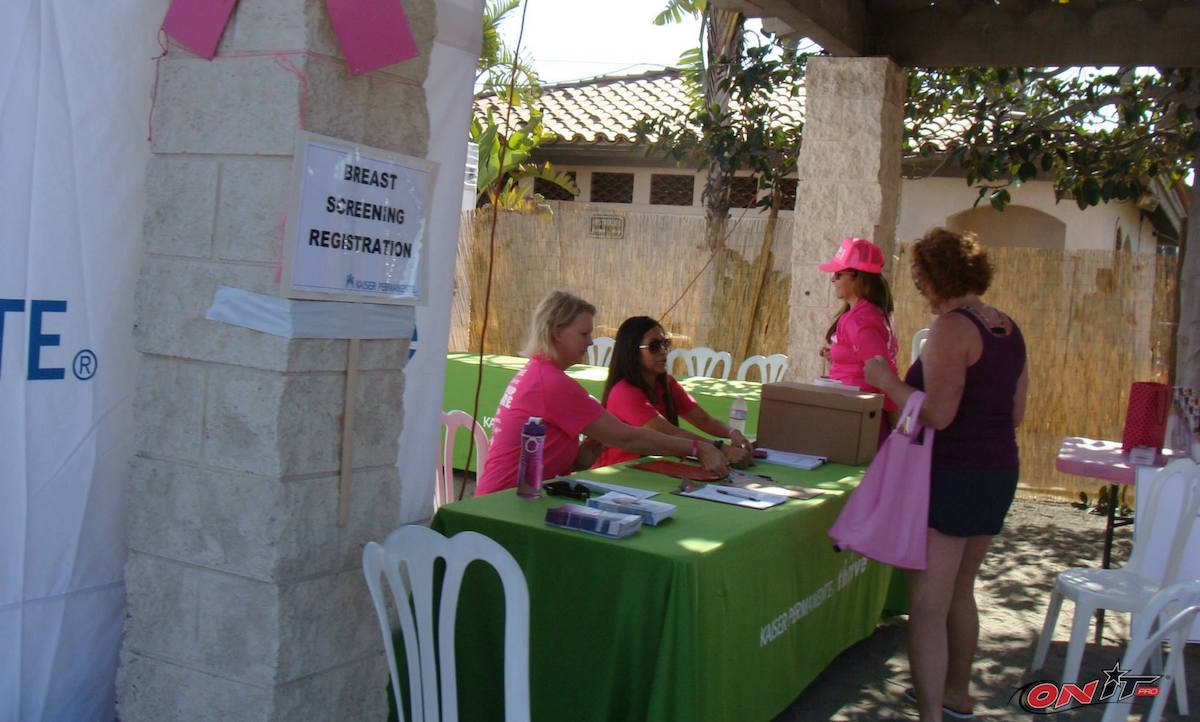 Stand Up for the Cure staffers helping to get participants registered. | Photo: Onit Pro
Stand Up for the Cure staffers helping to get participants registered. | Photo: Onit Pro
5) Not Staying on Published Schedule
Stay on track with the published schedule. Far too many events stray away from the timeline advertised on the event’s website and/or fliers. People have commitments, their time is valuable, and there are few things more frustrating than being stuck at SUP event longer than planned. Stay on point. From registration to race meeting and from race finish to awards, do not be flexible on times. Award sessions are notorious for running late. Cut it short if necessary and keep the ball rolling. Staying on point can go a long way to retaining your participants for next year’s event.
6) Lack of Clear Communication of Race Courses/Rules
Naturally, event organizers think that their race courses and rules are crystal clear and need little-to-no explanation. Wrong! It’s intuitive to you because you’ve spent the time on it. Others have not. Too often paddlers round the wrong buy, run for the finish line without paddles, and violate all kinds of course markers and rules. Publish on the website a map of the course and all the respective rules. Print posters and/or draw on white boards and place them at the event site. Assume that people are not getting it at the pre-race meeting. And check with the fastest paddlers to ensure they get it and will lead the pack in the right direction.
CLICK HERE to see more SUP Event Organizing Tips.
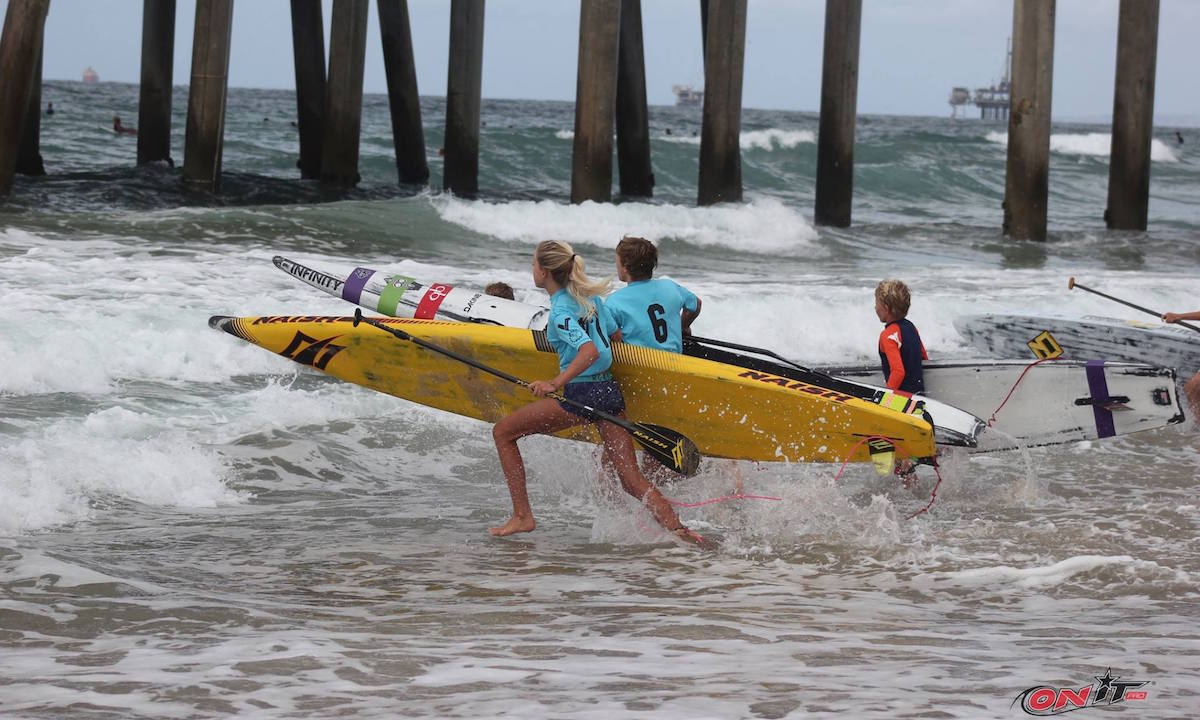 Youth start at the 2015 SUWS event in Huntington Beach. | Photo: Onit Pro
Youth start at the 2015 SUWS event in Huntington Beach. | Photo: Onit Pro
7) Lack Conflict Resolution Rules, Video, and Process
Paddlers place lots of energy into a race, the blood runs hot, and wrong things happen. And you better be prepared. Whether it’s a small or large event, people take their efforts seriously and do not like being wronged. So have clear conflict resolution rules in place. If running an elite standup paddle race, video the entire event. And lastly, have a process to resolve conflicts. Don’t wing it on the fly because it will likely backfire. Even some of the world’s highest profile events have been guilty of improvising and outraging paddlers all the more. Yes, there can always be situations for which Conflict Resolution Rules are yet to be crafted. But having the discipline to start with some rules is better than starting with none. Look at the World Paddle Association (WPA) and the International Surfing Association (ISA) for such rules.
8) Busting Budget on Awards and Wrong Trophy Count
Trophies are a draw, a big one. People who compete really enjoy getting nice awards. And sometimes event organizers break the bank making them. Local carpenters or other craftsmen tend to build the most beautiful awards. Typical Glass and Crystal Awards can also deliver a punch. Be careful not to spend beyond your budget. And when making awards, if you can afford, go premium for 1st, 2nd, and 3rd in the highest profile divisions like pro or pro elite but then lean generic. Not printing the year, board class, and placement on the awards allow you to reuse them the next year in case you overproduce awards. Be thoughtful on the budget and get your trophy count right.
9) Publish Prize Money and Not Being Able to Pay
There is little worse than racing for a certain $$$ amount just to find out that there is no such money. Believe it or not but some of the world’s highest profile races have run into this problem. Normally, that has to do with misplacing the funding source, typically placing it on entry fees. But then there is bad weather or for whatever reason turnout is lower than expected and participants race to find no money at the finish line. To avoid this problem, rely on sponsorship or other sources when committing to prize money. Also, deliver it promptly. Some events have taken over a year to deliver the cash. International participants sometimes cannot be paid because of tax requirements. Figure that out and be ready to deliver the cash and do it promptly.
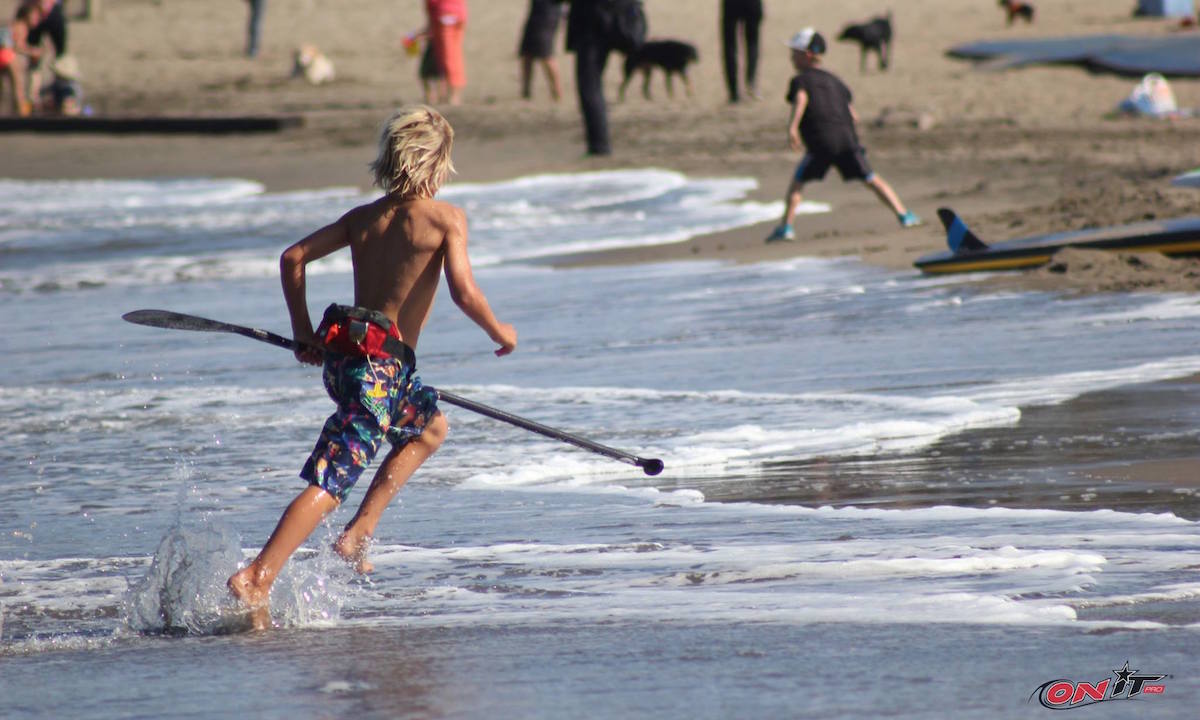 Youth paddler runs to the finish, paddle in hand, at 2015 Battle of the Bay event. | Photo: Onit Pro
Youth paddler runs to the finish, paddle in hand, at 2015 Battle of the Bay event. | Photo: Onit Pro
10) Neglect Sponsors After Taking Their Money
Sponsors should be an integral part of your stand up paddle board event. They’re contributing with products, time, or money and want their return on investment, rightly so. First, find sponsors that are a great match for the objective of your event. If you get that right, then incorporating them throughout the SUP event will be very natural. Promote them thru the website, printed material, links back to their sites, social shout outs, plugging them through the PA system, etc. Sponsors are also participants and should have a truly satisfactory experience. Far too often event organizers take their money and forget them. Sponsors play an essential part in diversifying your source of income, improving participants’ experience, and delivering a broader appeal to your event. Promote them thoroughly.
What other top mistakes do you see SUP event organizers making? Let us know your thoughts in the comments below.
To see more SUP Event Organizing Tips, click HERE.
© Copyrighted Exclusive Supconnect Content
Andre Niemeyer
Andre Niemeyer is Supconnect's Publisher, founding president of the Standup Paddle Industry Association, and an expert SUP surfer. He has a strong background in competitive longboarding and has competed and won some of the early sup surfing events in mainland US.
Website: supconnect.com Email This email address is being protected from spambots. You need JavaScript enabled to view it.
